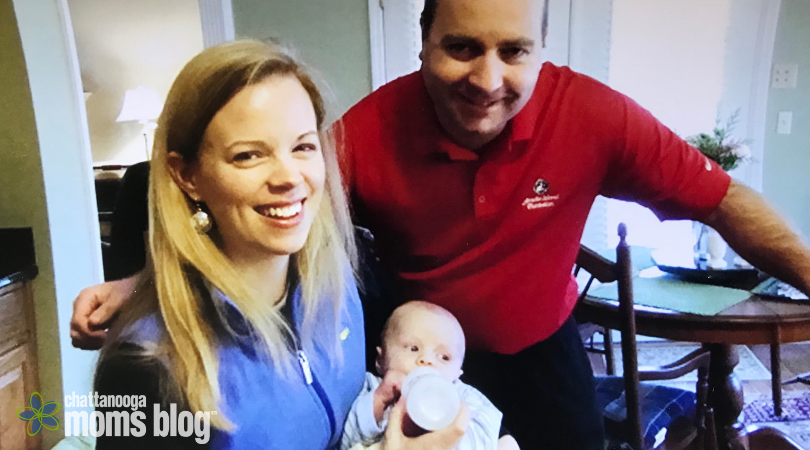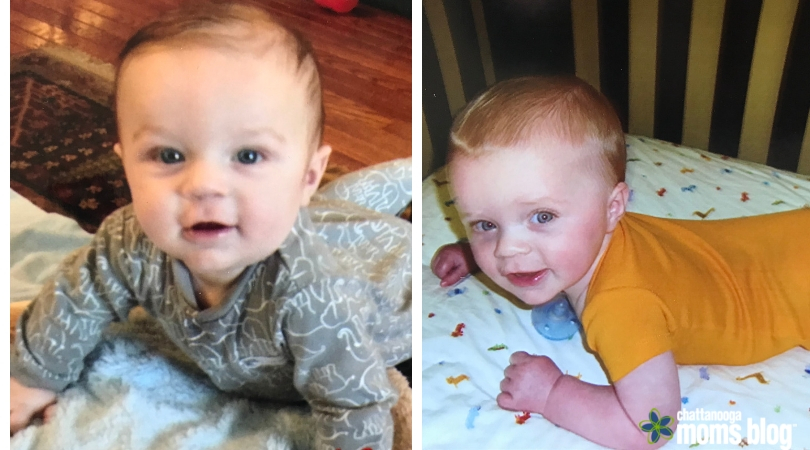
As my boys grow, they have more energy than I can muster after a pot of coffee. They are thriving and are healthy boys. They play soccer, baseball, they swim, and basically run around like Tasmanian Devils. Since they are now five and seven, I have a perspective of their little squishy new bodies, when they were newborn and almost everyday was a blur.

But, in the stupor of sleepless nights, I can vividly remember my frustration with breastfeeding.
Since my children are older and breastfeeding is behind me, I thought I’d share my own experience. First off, I tried and tried. In my utter exhaustion, I stopped breastfeeding and I thought I was failing my child, failing myself. This post is not a call to stop breastfeeding or not breastfeed; it’s supposed to alleviate the guilt and shame that some women may feel because they can’t breastfeed or choose not to breastfeed. I’ve also provided some prenatal resources that may provide support for those who are anxious about their first breastfeeding experience.
If you’ve read my earlier posts, you know I’m an anxious person. I like to prepare myself. I read, I research, I consult friends. Uncertainty is not really a strong point for me. Giving birth to a child catapulted me into an otherworldly, almost cosmic understanding of the uncertainty of life. Yikes! But, that’s just the beginning. When the baby comes home, that’s when there’s a flood of uncertainty. Sleep, maybe. Hunger, maybe. And then there’s breastfeeding.
Prepare:
As my belly grew larger and I pondered the enormity of my baby cluelessness, I read Secrets of the Baby Whisperer by Tracy Hogg and Melinda Blau. It was an essential read. It helped me understand the needs of my baby and ways to calm him. I felt such a sense of peace, but was still overwhelmed with the enormous job of breastfeeding. This book, as with others, discusses the mechanics of breastfeeding, but it doesn’t really deal with solving essential breastfeeding problems. In my utter cluelessness, I thought (or maybe hoped) I could figure it out. But questions popped into my mind: What if the baby isn’t latching? How do you know if the baby is getting enough to eat?
I took a breastfeeding class, but who can prepare for something so intimate without seeing it or spending time around people who are actually doing it? If you have a friend or relative who breastfeeds, it’s great. They can hopefully give you advice and exhibit a correct technique.
Fears:
While still in the hospital, the lactation nurse said my oldest son’s frenulum was tight. She had to explain that term. As if a new mother would know that word. (It’s the small flap of tissue beneath the tongue and it can make breastfeeding difficult.)
When we brought him home, we were both exhausted. I honestly don’t remember many events during those first few days. There’s so much to learn and my body was still healing from a caesarean birth, but the look in my starving child’s eyes scared me. He was starving but not for the reasons I thought. He wasn’t getting any milk or colostrum. Nothing. I knew we needed help. He didn’t have any wet diapers, which is an indication that he wasn’t getting any breast milk.
In a panic, we bought bottles and I started supplementing with formula. I knew that could be a problem if I wanted to continue breastfeeding, so I would pump during nap times. I know some people produce too much milk, but I wasn’t making enough milk for a single feeding. In defeat, I showed the bottle, containing just a trickle of milk to my friend. I felt so ashamed that my body was betraying me. Does a hormonal, exhausted mom need more anxiety?
Help:
If you try breastfeeding and the circumstances prove impossible, please don’t be hard on yourself. It’s difficult and there may be personal or medical reasons creating an impossible situation. It’s your body, so make the best choice for you and your baby.
If you do wish to breastfeed, here are some prenatal resources. It is possible to find help before your baby is born and it may alleviate some anxiety. When my boys were newborns, I wasn’t aware of this support.
- Consult a lactation nurse while you’re pregnant. We toured the hospital, but I’m not certain if I met with a lactation nurse. At the time I was more nervous about my son’s breech position, which necessitated a caesarean birth.
- Find out the hospital/newborn procedures. Since skin-to-skin contact is so important for breastfeeding, it’s essential that you hold your baby as soon as he/she is born. I can remember my sister-in-law telling me to ensure I was able to hold my son at birth. With a caesarean birth, I wasn’t aware of the hospital procedures. If I remember correctly, I saw him, but then he went directly to the nursery.
- Attend a breastfeeding support group before your baby is born. To really see a child latch and witness a successful breastfeeding session, a support group may be the best answer. In the group, you’ll find new mothers who are learning and lactation consultants who can answer any questions.
- Find a lactation consultant before baby arrives. Then you can find someone with whom you are comfortable. When I went home, I really didn’t have a support person, someone to call on. Plus, I live a half-hour away from the hospital, which didn’t seem accessible.






















Been there, been overwhelmed by that. Great post, Cary!
Thanks.
Comments are closed.